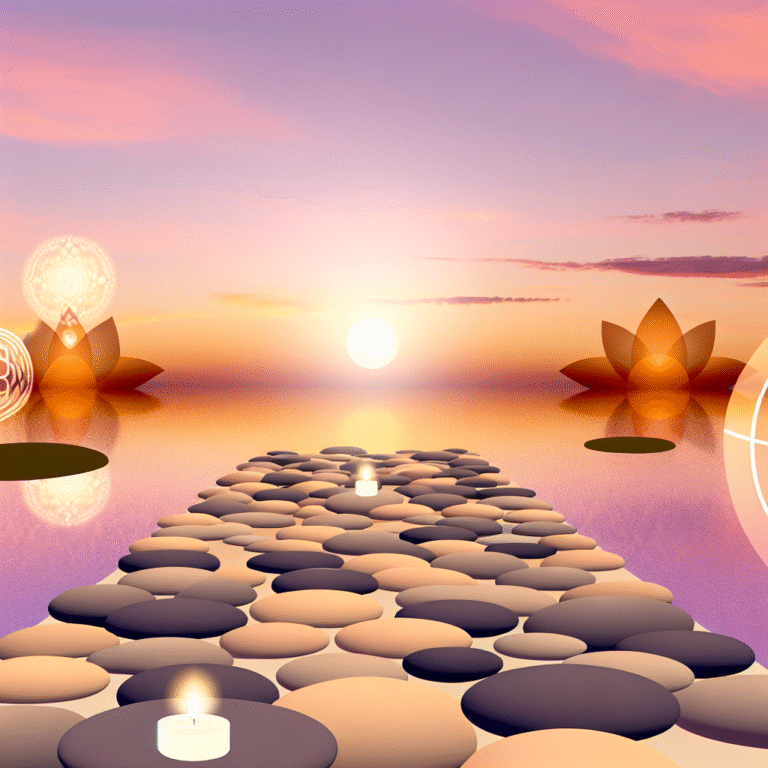
Finding Balance: The Essential Importance of Healthy Boundaries in Relationships
Introduction
In the intricate tapestry of our human connections, relationships can often feel like a double-edged sword. On one side, they bring joy, support, and a sense of belonging. Yet, on the other, the potential for misunderstanding, over-dependence, and emotional turmoil lurks, especially when boundaries are blurred or neglected. This is where "Finding Balance: The Importance of Healthy Boundaries in Relationships" becomes not just a topic of discussion but a vital ingredient for sustaining harmonious connections. Understanding and establishing healthy boundaries is crucial in fostering respect, trust, and a sense of individuality in any relationship, be it romantic, platonic, familial, or professional.
Understanding Boundaries: What Are They?
Boundaries define the limits of our personal space, emotional needs, and interactions with others. They create a healthy barrier that nurtures mutual respect and understanding. Boundaries can manifest in many forms:
- Physical Boundaries: Personal space needs and physical touch preferences.
- Emotional Boundaries: Your feelings and emotional needs, ensuring you aren’t overwhelmed or manipulated.
- Time Boundaries: How you allocate time for yourself versus others.
- Material Boundaries: Guidelines regarding personal belongings and financial matters.
Why Are Healthy Boundaries Important?
Healthy boundaries empower individuals. They help you to:
- Protect Your Time: Ensure you dedicate time for self-care and personal pursuits.
- Emotional Safety: Foster a sense of security where feelings and thoughts can be expressed freely.
- Promote Mutual Respect: Encourage a relationship built on respect for each other’s needs and limits.
The Spectrum of Boundaries: Case Studies in Action
Case Study 1: The Over-committed Friend
In a social circle, Sarah often finds herself obliged to attend every event, leaving little time for her own needs. She feels pressured by her friends, which leads to resentment. By establishing a time boundary—deciding to attend one event per week—Sarah finds balance and joy in friendships, preventing burnout.
Analysis: This case illustrates how boundaries play a vital role in managing emotional energy and maintaining relationships without sacrificing personal well-being.
Case Study 2: The Overbearing Partner
Mark and Lisa had a romantic relationship where Mark often felt suffocated by Lisa’s constant need for reassurance. By addressing emotional boundaries directly, they started discussions about needs and expectations. Mark articulated his need for personal space, while Lisa learned to express herself without dependency.
Analysis: This situation emphasizes the importance of clear emotional boundaries, where both partners can maintain their identities while still supporting one another.
Case Study 3: The Colleague Dilemma
At work, Jamie was overrun with tasks that were not his responsibility because he struggled to say no. By setting material and time boundaries, he communicated better about project limits and learned to prioritize tasks without feeling guilt.
Analysis: This case highlights the importance of boundaries in a professional setting, showcasing how they can lead to better productivity and respect while preventing burnout.
The Need for Examples: Exploring Graphical Insights
Table: Types of Boundaries in Relationships
| Type of Boundary | Description | Importance |
|---|---|---|
| Physical | Personal space, touch preferences | Protects comfort and personal space |
| Emotional | Feelings, needs for support | Ensures emotional security |
| Time | Allocation of personal time | Promotes self-care and balance |
| Material | Personal belongings, finances | Establishes respect for personal assets |
How to Establish Healthy Boundaries
Self-Reflection: Know Your Needs
The first step towards "Finding Balance: The Importance of Healthy Boundaries in Relationships" is self-awareness. Consider the areas in which you feel uncomfortable, overwhelmed, or drained. Ask yourself:
- What are my emotional triggers?
- Where do I feel my boundaries are being crossed?
- What would make me feel respected and valued?
Communicate Clearly
Once you’ve identified your needs, communicate them clearly and assertively. Use "I" statements to express how you feel without placing blame. For instance:
- Instead of saying, "You make me feel overwhelmed," try, "I feel overwhelmed when I have too many commitments."
Be Consistent
Maintain your boundaries consistently. If you waver or backtrack on established limits, it can create confusion and resentment in relationships, undermining the balance you’re striving for.
Respect Others’ Boundaries
Understanding that others also have boundaries is essential. Respecting their limits not only strengthens trust but also encourages a reciprocal understanding of your own boundaries, further reinforcing the foundation of your relationship.
Common Misconceptions about Boundaries
Myth 1: Boundaries Are Selfish
Many believe that setting boundaries is an act of selfishness. In reality, they are a means of preserving your identity and energy for more meaningful connections.
Myth 2: Boundaries Lead to Conflict
While setting boundaries can initially create discomfort, it often leads to clearer expectations and improved relationships over time.
Myth 3: Healthy Boundaries are Fixed
Boundaries are dynamic and can evolve as relationships grow. It’s vital to revisit and adjust boundaries regularly as needed.
Myth 4: Establishing Boundaries Is Easy
Setting boundaries can be challenging, requiring practice, courage, and clarity. It’s a skill developed over time.
Myth 5: Saying No Is a Failure
Saying no can often be an essential part of preserving your well-being. Recognizing this truth is vital for maintaining balance.
The Transformative Power of Healthy Boundaries
Setting healthy boundaries in relationships can transform not only your interactions but also your personal growth journey. Here are some transformative effects:
- Increased Self-Esteem: As you assert your needs, you recognize your worth.
- Stronger Connections: Healthy boundaries foster relationships built on mutual respect and understanding.
- Enhanced Well-Being: Emotional and physical well-being improves as a result of effective self-care and personal space.
- Conflict Resolution: Clear boundaries facilitate healthier communication and conflict resolution strategies.
Conclusion
Finding balance in relationships is an art that flourishes through the practice of establishing and respecting healthy boundaries. They serve as the essential framework within which relationships can blossom and thrive. By recognizing the importance of healthy boundaries, embracing self-reflection, and fostering open communication, you create a more fulfilling relational landscape.
Take the first step today—reflect on your boundaries and make a commitment to uphold them. Remember, setting boundaries isn’t an act of exclusion; it’s an approach toward inclusion—of yourself, your needs, and the essence of who you are.
FAQs
1. What are some signs I need to set better boundaries?
Feeling overwhelmed, constantly fatigued, or experiencing resentment in relationships are critical signs that you may need to establish or adjust your boundaries.
2. How can I communicate my boundaries without offending others?
Use "I" statements and frame your boundaries around your needs rather than others’ behaviors. Focus on how certain actions affect you rather than casting blame.
3. What should I do if someone violates my boundaries?
Reiterate your boundaries clearly and calmly. If the behavior continues, consider whether the relationship is worth maintaining.
4. Are boundaries the same in every type of relationship?
No, boundaries can vary based on the relationship type. For example, boundaries in professional relationships may focus on time and work responsibilities, while personal relationships may delve into emotional space and intimacy.
5. How can I ensure I respect the boundaries of others?
Listen actively, ask clarifying questions, and be attentive to any verbal or non-verbal cues indicating discomfort. Regular check-ins can help establish a mutual understanding.
By embracing the concept of "Finding Balance: The Importance of Healthy Boundaries in Relationships," you actively contribute to a more harmonious and respectful environment, both for yourself and those around you. Start your journey to balance today!

















